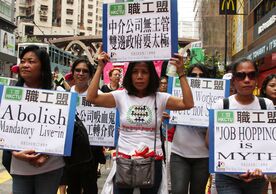Jobs are the lifeblood for national economies and family budgets. The search for economic opportunity often drives people to move around the globe. The most educated and highly skilled workers are in demand, and immigration policies often reflect that priority. Less skilled would-be immigrants, however, are often subject to tighter restrictions – even in nations where native citizens refuse to take on harvesting, construction, cleaning or other difficult tasks. Advanced technology reduces the need for labor; employers also rely on outsourcing, contract workers and the internet for digital work, including tax preparation, X-ray analysis or graphic design. Nations fiercely compete for jobs while multinational corporations reduce labor costs to increase profits.





